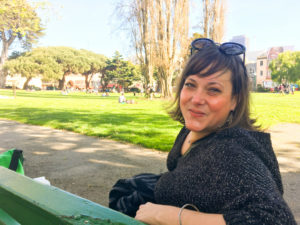San Francisco-Marin Food Bank Opposes Federal Rule Change that Will Take Food from ~755,000 Americans
Today, the United States Department of Agriculture finalized a rule change that will result in significant cuts to the Supplemental Nutrition Assistance Program (formerly food stamps and known as CalFresh in California). SNAP is a vital anti-hunger safety net, helping low-income residents make ends meet in high-cost areas like San Francisco and Marin. Currently, over 64,000 San Francisco residents and nearly 10,000 Marin residents receive monthly SNAP/CalFresh nutrition benefits to help meet their basic food needs. This rule change jeopardizes the health and well-being of some of our most vulnerable neighbors by imposing arbitrary and harmful time limitations on nutrition assistance. Simply put, this rule change will result in some 755,000 people losing SNAP benefits, exacerbating hunger across our state and throughout our communities.
Rule Targets People Unable to Secure Sufficient Employment
This change will punish workers who are struggling to find steady employment by taking away their food assistance, which won’t help them find a better job or find work faster. Imagine your last job search. Now imagine doing it on an empty stomach and no idea how you will pay for your next meal. It harms vulnerable people by denying them food benefits at a time when they most need it, and it does not result in increased employment and earnings. The people targeted by this change already face multiple barriers to work, including limited access to adequate transportation and affordable housing, criminal records that impact job eligibility, and undiagnosed physical and mental illnesses.
Food Bank Remains Steadfast in Commitment to Provide Food for All
The publication of this rule comes despite the passage of the 2018 Farm Bill, which had strong bipartisan support and explicitly rejected these cuts to the SNAP program. The Administration’s publication of this rule goes against Congressional intent, our mission as a food bank, and our shared belief that no one deserves to go hungry in America. The San Francisco-Marin Food Bank remains committed to working to end hunger in our service area.
While published today, the rule is not yet in effect and is pending a 60-day waiting period. The rules, however, have not changed – and individuals impacted should continue using benefits as usual. We urge CalFresh clients and community members who are concerned about the impact of this change to call our CalFresh hotline at 415-767-5220 or visit sfmfoodbank.org.






 Bad luck and broken dreams
Bad luck and broken dreams
Share